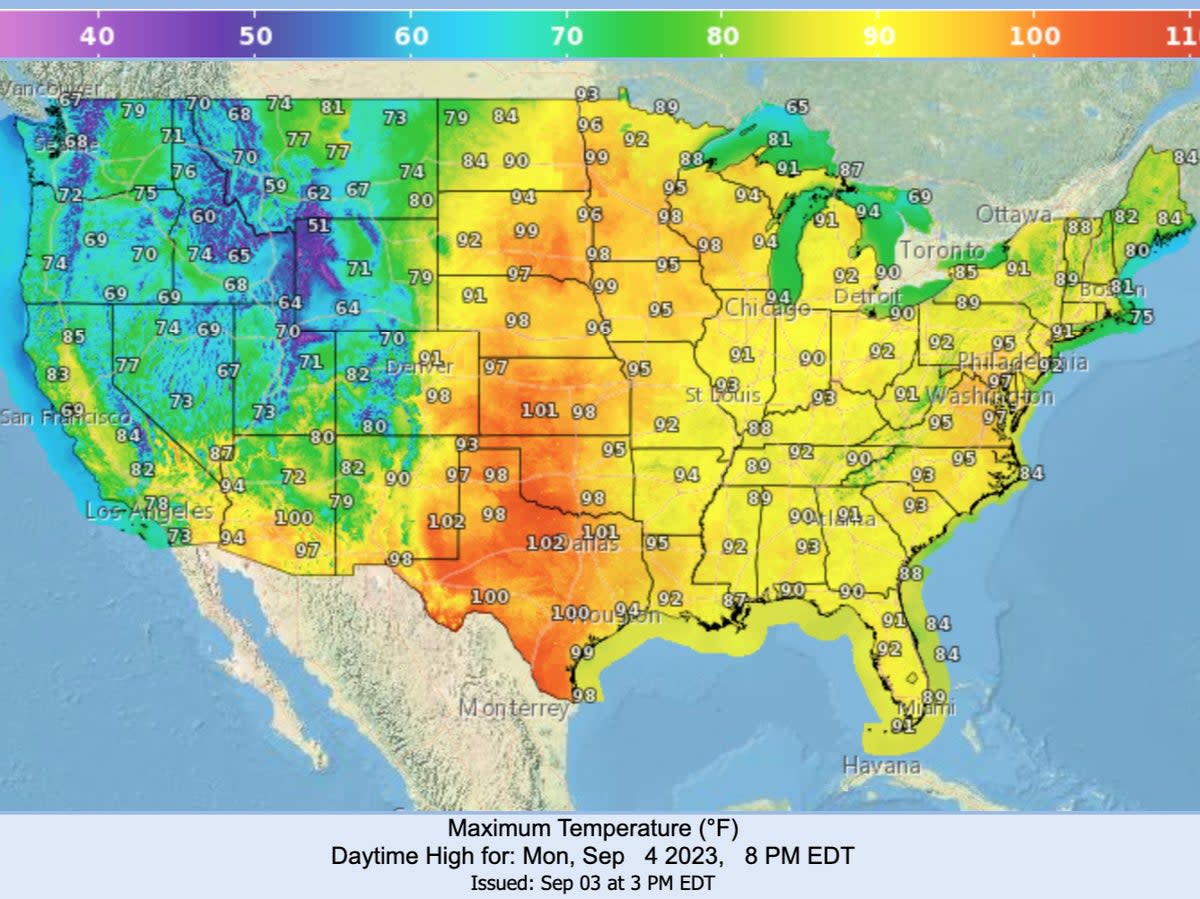Labor Day weekend heatwave puts 200 million on alert after record-breaking summer

This holiday weekend is shaping up to be one of the hottest on record for parts of the United States with more than 200million facing a heatwave, according to the National Weather Service (NWS).
Temperatures in the 90 degree Fahrenheit (F) range are forecast for the start of the week across the middle of the country with some pockets reaching 100F - 10 to 20 degrees higher than historical averages.
The east coast won't be spared - AccuWeather senior meteorologist Dave Dombek said that the high 90s are expected in "many areas".
"It is possible that New York City and other locations that have not yet had a heatwave, finally check that off the list next week," he said.
Washington DC will go even higher with 97F forecast on Labor Day.
This was the hottest summer on record for at least 20 US cities including New Orleans, Houston, Miami, Austin, San Antonio, and Phoenix.
"âThis summer was the hottest on record for virtually every site along and just inland of the Gulf Coast, from Brownsville, Texas, to Key West, Florida," weather historian Christopher Burt told Weather.com.
Labor Day temperatures are expected to reach 90F in New Orleans, 90F in Tampa, 93F in Houston, and 102F in Del Rio, Texas, according to the NWS .
The central US, stretching from Texas to the northern border, will be especially hot. Oklahoma City and Minneapolis are expected to see 99F while Dallas may hit 100 degrees.

The heatwave is expected to impact more than 210 million people across the US, and will likely last until Wednesday or Thursday for the Plains states when highs drop into the 70s. However, the northeast is expected to remain hot until Friday.
A historic heatwave gripped the US southwest this summer with Phoenix, Arizona remaining above 100F every day in July. Alberquerque, Las Vegas, and the San Joaquin Valley in California also all experienced more than 100-degree days for much of July.
Record breaking heat isn’t just a US problem, the climate crisis has driven temperatures into uncharted territory across the world.
Climate scientists attribute the high temperatures around the world this year to an emerging El Niño pattern and the climate crisis driven by the burning of fossil fuels.


